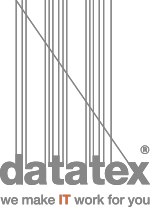Top CRM software advantages in Textile and Apparel Industry
We are social beings whose quality of life largely depends on relationships, on their quality, intensity, strength, and on our ability to maintain and improve those relationships.
It is no different in the business world. In the textile and apparel industry, maintaining strong customer relationships and efficient order handling can make or break a business. With tight production schedules, high-volume B2B interactions, and a constant flow of orders, managing customer data and optimizing communication is essential.
CRM – Customer Relationship Management software steps in to streamline these critical processes, giving companies the power to enhance customer satisfaction, increase sales, and create a seamless workflow from initial contact to order fulfillment.
Let’s explore CRM importance and benefits in the Textile and Apparel Industry.
Understanding CRM in Textile & Apparel
CRM, or Customer Relationship Management, is a software tool designed to support every aspect of customer interaction – from lead generation and pre-sales activities to after-sales and follow up service. All in one place, with full relation history and traceability.
In the textile and apparel sectors, where timely communication and order accuracy are crucial, CRM is an indispensable part of any business strategy.
When embedded within a broader ERP (Enterprise Resource Planning) system like Datatex NOW apparel ERP, CRM acts as the centralized hub for all customer-related data, facilitating quick access, smooth communication, and better-informed decisions across departments.
Key Benefits of CRM for Textile & Apparel Companies
- Enhanced Customer Communication
CRM centralizes customer data, making it easy to personalize engagement. It records each step of a customer journey and keeps in all relevant data, helping you to get to know your prospect better.
For textile businesses handling large B2B accounts or complex orders, CRM provides a single source of truth for customer preferences, communication and order history, and contact details – improving the quality and consistency of communication.
- Better Marketing & Sales Coordination
CRM allows marketing and sales teams to work in sync by housing all lead and customer information in one system. This ensures no prospect slips through the cracks and enables a seamless experience for the customer, from the initial inquiry to the closing of a deal.
CRM is the place of synergy between Marketing and Sales department, where constant updates, comment and notes from both sides are leading toward the same objective: customer satisfaction.
Your constant prospects status updates (qualified, hot prospect, customer…) help you keeping your database clear and precise and your campaigns or remarketing activities fully targeted.
- Efficient Order Tracking and Service
With real-time data available across teams, CRM enhances order tracking, follow-up, and customer service. Apparel and textile businesses can use CRM to manage order timelines, resolve issues faster, and keep clients informed, ensuring a smoother process that builds customer trust. - Data-Driven Decision-Making
CRM tracks detailed customer insights, helping managers understand buying patterns, forecast demand, and develop data-driven strategies. This is particularly valuable in the textile industry, where seasonal demands and market shifts can have a significant impact on production planning.
CRM software allows you to generate all kinds of BI reports, using different filters and parameters to help you better understand your prospects structure and their needs.
How CRM Solves Industry-Specific Challenges
Managing High-Volume Orders
During peak seasons, textile manufacturers handle an influx of orders. CRM helps prioritize tasks and ensures orders are managed efficiently, allowing teams to scale their efforts in response to demand.
Maintaining Long-Term B2B Relationships
In the textile and apparel industry, customer loyalty is key. CRM helps keep a detailed record of each client interaction, enabling teams to nurture these long-term relationships and track valuable feedback for continuous improvement.
Improving Sales Forecasting
Using historical customer data, CRM improves the accuracy of sales forecasting. This capability allows textile companies to make better predictions about demand, ensuring resources are allocated efficiently and production meets market needs.
Best Practices for CRM in the Textile Industry
CRM software helps businesses in the textile and clothing industry enhance their relationships with your customers through effective data collection and analysis.
By leveraging a CRM solution, fashion businesses can streamline inventory management and supply chain management, ensuring timely deliveries in the ever-evolving fashion industry.
CRM software provides insights to analyze customer purchase history, enabling personalized customer experiences. This personalization leads to improved customer loyalty and engagement.
For retailers in the apparel and textile industry, understanding fashion trends and changing customer preferences is vital. The sales process is enhanced with tailored marketing strategies, ensuring better customer support and satisfaction.
As a result, textile software solutions become an essential tool for modern business success.
Centralize and Standardize Customer Data
Centralizing and standardizing customer data across departments ensures everyone has access to the same information, streamlining internal communication.
Furthermore, users of your CRM software can have user profiles with different levels of authorization and visibility, according to your own needs and preferences. This way, clear hierarchy structure is made, with precise single role or group access permits, keeping your data safe and well organized.
Prioritize Data Security
With CRM operating on a cloud-based platform, securing customer information is essential. Textile companies should enforce strict access controls and ensure data privacy, especially for B2B transactions involving sensitive client data.
Leverage Automation for Repetitive Tasks
CRM can automate routine tasks like follow-up emails, notifications, and report generation, freeing up time for your teams to focus on high-value activities.
Your sales force can get a task directly from the CRM system, along with the task description and priority alert set by the marketing team. This way you are sure that the high priority tasks are handled timely, with no delay.
Use CRM for Cross-Departmental Collaboration
As we already said, CRM isn’t just a sales or marketing tool—it’s a bridge between different departments. Integrating CRM with data from marketing, sales, and production ensures that everyone from production planners to customer service representatives has access to the information they need.
Real-Life Applications of CRM in Textile & Apparel
Consider a textile company that uses CRM to manage high-volume orders during peak times. With CRM, sales teams can prioritize orders, set reminders for follow-ups, and track real-time order updates. Meanwhile, production teams have insight into upcoming order demands, allowing them to optimize scheduling and ensure timely delivery.
Or imagine a fabric supplier who maintains long-term relationships with designers and fashion brands. By tracking each interaction and transaction through the CRM system, the supplier can offer tailored recommendations based on historical purchases, fostering loyalty and encouraging repeat business.
You are planning a new email campaign or you have just finished one and want to inform your sales team about the outcome by sharing KPI files them? Just upload it to your CRM.
Or imagine returning from a textile fair with a stack of new contacts, notes, and meeting impressions. Some prospects are eager for demos; others want to verify your quality, while existing clients may have follow-up requests.
Time is tight, and your marketing team quickly enters all contact details, meeting notes, and comments into the CRM, centralizing data by priority, status, and urgency. Authorized users can access and update this information, while the system sends task alerts to the sales team based on set priorities. With everything in one place, CRM simplifies follow-up and speeds up your sales activities.
Integrating CRM with ERP for Complete Control
When CRM is integrated with ERP software like Datatex NOW ERP, the result is a fully connected environment for managing customer interactions alongside order processing, inventory, and production data.
By merging CRM and ERP, textile companies achieve comprehensive oversight across all functions, allowing teams to operate more efficiently and deliver a superior customer experience.
Conclusion: Embracing CRM for Future Growth
Implementing CRM in the textile industry goes beyond mere technology—it’s about building stronger customer relationships, optimizing processes, and supporting sustainable growth.
By integrating CRM with NOW apparel ERP, companies can unlock new levels of productivity, drive customer satisfaction, and establish a competitive edge in the ever-evolving textile and apparel market.
Download our CRM brochure or get in touch with us for further information!




